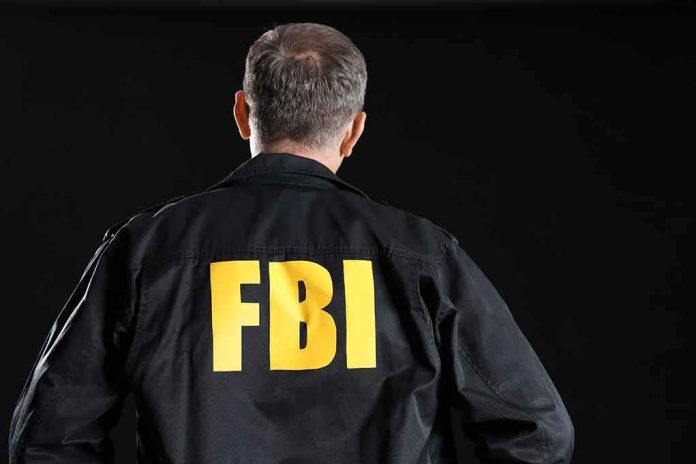
Sinaloa Cartel hackers commandeered Mexico City’s surveillance network to track and kill FBI informants, exposing a shocking vulnerability that led to multiple deaths and compromised U.S. law enforcement operations against one of the world’s most dangerous criminal organizations.
Key Takeaways
- The Sinaloa Cartel hired a hacker who infiltrated Mexico City’s surveillance camera system to track FBI agents and their informants, leading to the killing of potential witnesses.
- A Justice Department Inspector General audit revealed that in 2018, the cartel hacker accessed an FBI assistant legal attaché’s phone data, exposing the identities of informants and cooperating witnesses.
- The breach occurred during FBI investigations into Joaquin “El Chapo” Guzman’s criminal enterprise, highlighting the cartel’s technological sophistication in countering U.S. law enforcement efforts.
- The FBI is now developing a strategic plan to protect sensitive information from surveillance threats, with some within the agency describing this technological vulnerability as an “existential” threat.
Deadly Surveillance: How Cartels Turned Government Technology Against Law Enforcement
In a disturbing revelation that highlights the increasing technological sophistication of drug cartels, a hacker employed by the Sinaloa Cartel successfully accessed an FBI official’s phone records and utilized Mexico City’s surveillance camera network to track and eliminate informants. The breach, which occurred in 2018 during investigations into Joaquin “El Chapo” Guzman’s operations, allowed the cartel to identify an FBI assistant legal attaché (ALAT) in Mexico City and monitor their movements throughout the city, revealing the identities of potential witnesses and informants meeting with U.S. law enforcement.
According to the Justice Department Inspector General’s audit titled “Mitigate the Effects of Ubiquitous Technical Surveillance,” the cartel used the compromised information “to intimidate and, in some instances, kill potential sources or cooperating witnesses,” as reported by an FBI case agent. The revelation came after someone tipped the FBI about a hacker “who offered a menu of services related to exploiting mobile phones and other electronic devices.” The report further explained, “According to the FBI, in addition to compromising the ALAT’s phone, the hacker also accessed Mexico City’s camera system, used the cameras to follow the ALAT through the city, and identified people the ALAT met with.”
A U.S. Justice Department report released today reveals that in 2018, a hacker linked to Mexico’s Sinaloa cartel used an FBI official’s phone data and Mexico City’s surveillance system to track the agent and help identify informants, some of whom were later intimidated or killed.…
— NTC Report (@NTC_Report) June 28, 2025
Cartels Escalate Technological Warfare Against U.S. Law Enforcement
The incident represents a significant escalation in the technological arms race between cartels and law enforcement. The Trump administration has prioritized cracking down on cartels, labeling them as foreign terrorist groups, but the sophisticated surveillance techniques employed by these criminal organizations present new challenges. Derek Maltz, a former Drug Enforcement Administration official, highlighted the extent of cartel capabilities, stating, “The cartels run a multibillion-dollar global enterprise and utilize sophisticated technology to enhance their business operations.”
“They utilize state-of-the-art sophisticated surveillance techniques to identify law enforcement activities and their adversaries,” explained Derek Maltz, former head of the DEA’s Special Operations Division.
While the FBI, DEA, and U.S. military continue to deploy advanced surveillance to combat the Sinaloa and Jalisco New Generation cartels, this breach demonstrates how cartels are increasingly employing sophisticated countermeasures, including hacking expertise and cryptocurrency operations. The inspector general’s report revealed the gravity of the situation, noting, “Some within the FBI and partner agencies, such as the Central Intelligence Agency (CIA), have described this threat as ‘existential.'” In response, the FBI is developing a strategic plan to better protect sensitive information from surveillance threats.
🚨🇲🇽 BREAKING – DOJ: SINALOA CARTEL HACKED FBI TECH TO HUNT AND KILL INFORMANTS
Turns out the Sinaloa cartel isn’t just moving kilos- they’re moving bytes, too.
A DOJ bombshell says in 2018, a cartel-linked hacker cracked into an FBI official’s phone and tapped into Mexico… https://t.co/WYE0JIF3NX pic.twitter.com/TNImrCdCn1
— Mario Nawfal (@MarioNawfal) June 28, 2025
Broader Implications: Cartel Financial Networks Under Scrutiny
The technological surveillance breach comes as the U.S. Department of the Treasury has intensified pressure on the cartels’ financial networks, recently sanctioning two Mexican banks and a brokerage firm for laundering money for drug cartels. Notably, the brokerage firm Vector Casa de Bolsa is owned by Alfonso Romo, former chief of staff for ex-President Andrés Manuel López Obrador. The Mexican government has disputed these claims, defending the financial institutions despite U.S. evidence of their involvement in cartel money laundering operations.
“A Mexican drug cartel hired a hacker to surveil the movements of a senior FBI official in Mexico City in 2018 or earlier, gathering information from the city’s camera system that allowed the cartel to kill potential FBI informants,” stated the Justice Department inspector general in the newly released report.
The Inspector General’s audit underscores the urgent need for enhanced cybersecurity protocols for law enforcement personnel operating in high-risk environments. Neither the hacker nor the victims were identified in the report, but the incident serves as a stark reminder of the evolving threats faced by U.S. law enforcement agencies operating against international criminal organizations. President Trump’s administration continues to focus on dismantling cartel operations, but this technological breach highlights the sophisticated countermeasures deployed by these criminal enterprises and the potentially deadly consequences when security systems are compromised.









